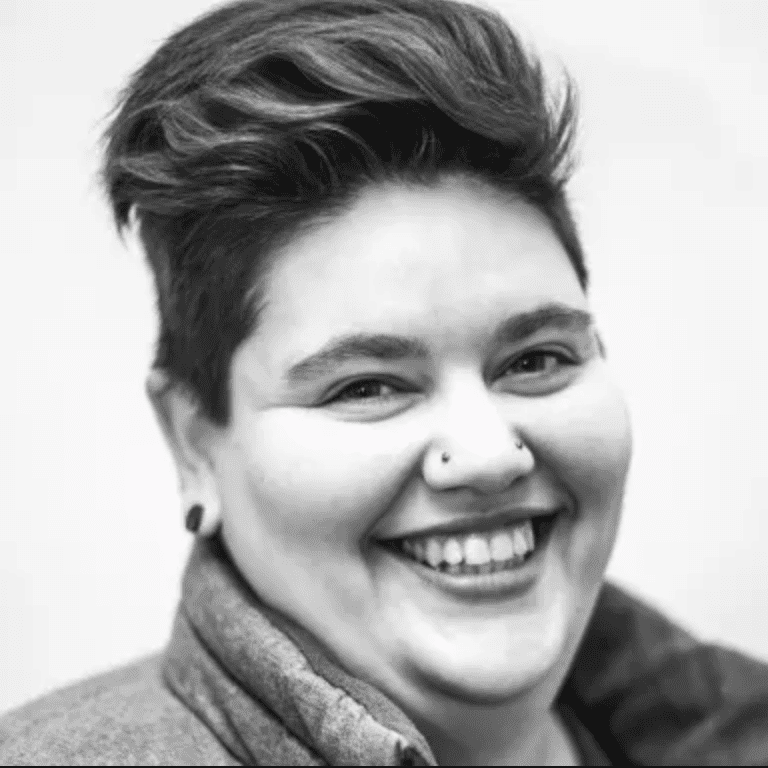How the Religious Exemption Accountability Project Advocates for LGBTQ+ Students
- LGBTQ+ students at taxpayer-funded Christian colleges face discrimination and harm.
- REAP is an initiative to challenge colleges that hide behind religious exemptions.
- LGBTQ+ students and allies can take several actions to support efforts by organizations like REAP.
Unfortunately, LGBTQ+ equality is not yet a reality on all university and college campuses, especially at taxpayer-funded Christian institutions. Sexual and gender minority students at Christian colleges and universities suffer both personally and professionally while pursuing their education. One initiative, funded by the national nonprofit Soulforce, is here to protect them.
The Religious Exemption Accountability Project (REAP) initiative combats these harms by filing civil rights complaints against institutions, conducting research and lobbying for changes to public policy, and elevating students’ experiences through storytelling. The need is great, according to REAP Legal Fellow Joe Baxter, The immense pressure this [discrimination] puts on students every day is horrific. And leads to incredibly increased rates of suicide, self-harm, and depression. It’s very harmful.
What Is a Religious Exemption?
Christian colleges and universities that discriminate against LGBTQ+ students are typically legally protected by what’s known as religious exemptions. Religious exemptions refer to requests by an organization, such as a church, nonprofit, or college, to be exempt from state or federal laws that prohibit discrimination on the basis of characteristics like sexual orientation and gender identity.
Religious exemptions allow organizations to perpetuate their negative Christian view of transgender and sexual minority individuals, families, and college students. For instance, states like Utah, Texas, and Virginia allow child welfare workers to refuse to place children in need with families that identify as LGBTQ+ because it conflicts with their religious beliefs. Further, private undergraduate colleges are exempt from discrimination in admissions, meaning they can legally get away with denying admissions to students because of their gender or sexual orientation.
What Is the Religious Exemption Accountability Project?
REAP was formed specifically to support sexual minority and transgender students and call out the harm caused by colleges and universities. REAP showed how many students were negatively impacted by funding a nationally-representative survey of 3,000 students at taxpayer-funded Christian colleges and universities. Their 2021 report highlights troubling findings, including that almost half (47%) of students feel like they don’t belong on campus because of their gender identity.
The survey is just the start, according to Joe Baxter. He describes the motivation behind the survey: We challenge this idea that taxpayer funding can be used at schools that refuse to treat LGBTQ+ students equally … if the government is going to partner with educational institutions to provide education to youth, it has to provide access equally to everybody regardless of your sexual orientation or gender identity.
REAP members have also been vocal about calling out governmental failures to protect LGBTQ+ students’ rights. In 2021, REAP formally filed charges against the U.S. Department of Education (ED), alleging ED should be held liable for allowing these institutions to discriminate against LGBTQ+ students. Unfortunately, their case was dismissed in 2023, but their fight is far from over.
How Students Can Protect and Support LGBTQ+ Students at Religious Colleges
There are several ways that LGBTQ+ students and their allies can take action to combat discrimination against college students.
Students can:
- Show support for LGBTQ+ students by displaying Pride flags on campus
- Raise awareness of LGBTQ+-friendly colleges and universities
- Advocate against anti-trans laws and support laws that protect transgender students in their state (such as supporting the creation of gender-neutral bathrooms)
- Push for on-campus gender-affirming care options and support fair housing mandates
- Protest policies that aim to silence or erase rights of LGBTQ+ students
- Follow and spread the word about REAP’s social media accounts
Past and Current REAP Campaigns
In addition to their research and legal efforts, REAP organizes nationwide protests to support LGBTQ+ students, hosts petitions to call for the end of harmful practices at religious institutions, and collaborates with other organizations to advance efforts to protect LGBTQ+ rights.
STRIKE OUT Queerphobia
This REAP campaign includes a petition and a pre-drafted protest form that calls out Christian colleges and universities that discriminate against, and ultimately harm, LGBTQ+ students. The campaign also calls for a national protest to support their efforts, including a walkout and a rally, which was held on National Coming Out Day (October 11) in 2022.
Petitioning Colleges and Universities to Change Their Policies
According to Baxter, Universities have an obligation to their students. They should be taking care of their students. They should want more accountability and more oversight because that protects their students. And their job is to protect the well-being of their students. And they’re failing their LGBTQ+ students incredibly.
REAP has two active petitions on its website calling out harmful practices at Walsh University and Oral Roberts University. The Walsh University petition asks Walsh to allow for the formation of a safe space club for LGBTQ+ students. The Oral Roberts University petition advocates for changes to the university’s honor code. One issue with the code? Prior to starting classes, students are forced to sign a pledge that denies their gender and sexual minority status.
Partnering With Other LGBTQ+-Friendly Initiatives
REAP also partners with several other initiatives and organizations to advance LGBTQ+ equity. They teamed up with Athlete Ally to support LGBTQ+ access to, and safe participation in, sports.
REAP also doesn’t shy away from the fact that many LGBTQ+ students want to maintain a religious identity as well. That’s why they created a progressive religious app called Our Bible App. The app includes stories of gender and sexual minority students that attend religious universities.
Discover more ways REAP is collaborating to further support LGBTQ+ students.
With Advice From:

Joe Baxter (he/him) is an attorney and legal fellow with the Religious Exemption Accountability Project, where he advocates for LGBTQ+ students attending the more than 200 taxpayer-funded institutions across the U.S. that explicitly discriminate against LGBTQ+ youth.
Baxter spent his undergraduate years at a religiously owned and operated university, Brigham Young University – Idaho, where he witnessed first-hand the discrimination that LGBTQ+ students face. Baxter began working to end religiously motivated discrimination by promoting cultural change and challenging our legal system’s status quo.
During law school, Baxter focused a large portion of his legal studies on the current imbalance between LGBTQ+ human rights and religious liberties. He wrote his capstone on the issue of LGBTQ+ discrimination at religious universities that receive federal funds.
Baxter graduated with honors from Lewis & Clark Law School in 2021, where he was a lead article editor for the Lewis and Clark Law Review and was elected to represent his class in the Student Bar Association.
Explore More College Resources

College Experience Guide for LGBTQ+ Students
Explore common experiences and challenges of LGBTQ+ college students and learn how you can ensure your campus supports and affirms LGBTQ+ students.

by R.B. Brooks
Updated June 5, 2025



